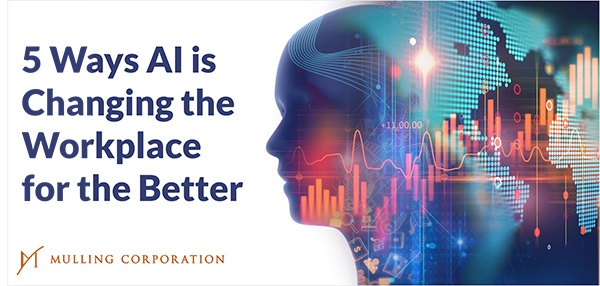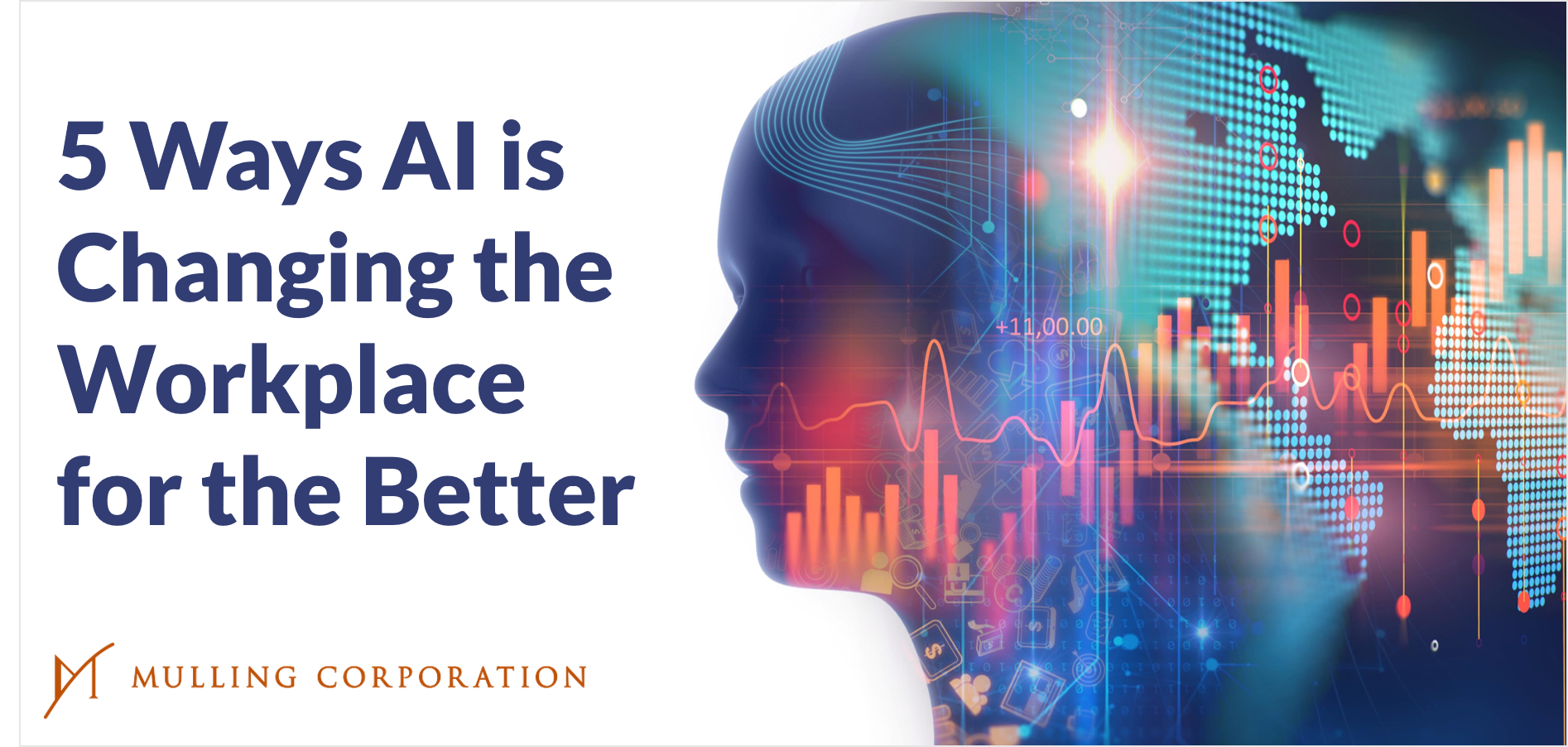Where does your organization stand when it comes to AI technology? Most leaders acknowledge the fact that the future of their business lies in Artificial Intelligence practices, but many are still navigating what that will look like. When it comes to HR functions, here are five ways AI can benefit your employees and your company as a whole.
- Recruiting: In today’s competitive job market, providing a positive recruiting experience will set your organization apart. AI can be programmed to schedule interviews, provide feedback to candidates, and even answer questions in a timely manner. In addition, it can meet the needs of both potential hires and current employees alike by automating access to information on benefits and career development opportunities. This way, human recruiters can focus and spend more time turning top talent into your next employee.
- Unbiased Hiring: No matter how hard we try to avoid it, unconscious bias can play a part in the hiring and promotion process, even showing up in job descriptions. Introducing AI algorithms can allow employers to both identify and remove these biases in order to broaden their applicant pool. For example, the human tendency to hire candidates with similar traits may eliminate a strong hire. By using data driven assessments instead, AI may find a better person for the job than you could on your own.
- Smoother Onboarding: Inevitably, new hires will need help getting to know your organization. Depending on the size of your company, this can be confusing. AI can help by supplying everything from helpful contacts to where to find answers to specific needs. Imagine receiving a FAQ document tailored to your first assignment on the job. Chances are you’ll have well-adjusted, confident employees earlier in the onboarding process than before.
- Increased Productivity: Many day-to-day workplace tasks that fall on HR are being transferred to AI technology. These include vacation requests, employee education options, and candidate profiles for open positions. How does this work? Using cognitive engines, organizations can do things like balance time off and recommend tailored training for a particular team’s needs. This leaves time for tasks and activities that ultimately lead to more productivity.
- Task Management: Certain HR-related tasks can take time away from other tasks that could further your company’s success. For example, pressing needs such as issuing a replacement tech device to an employee means that your mentoring and training program development often takes a backseat. With AI, these simpler tasks, like benefits questions and staffing requests can be automated, making room for strategic work that helps your organization stay competitive.
AI is the way of the future, and determining how to best integrate it into your company structure will continue to evolve. To start, consider implementing cognitive technology into your HR department with the above tips. Chances are, you’ll see benefits throughout your entire organization.
Here at Mulling Corporation, we want to help you and your employees succeed. To learn more, contact us here.


